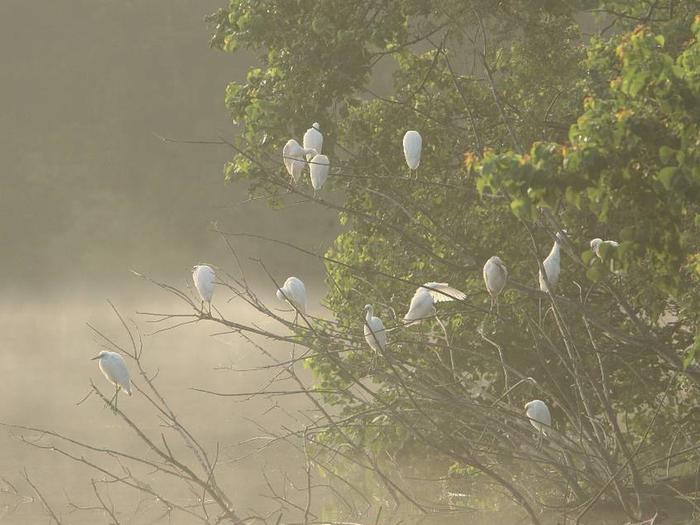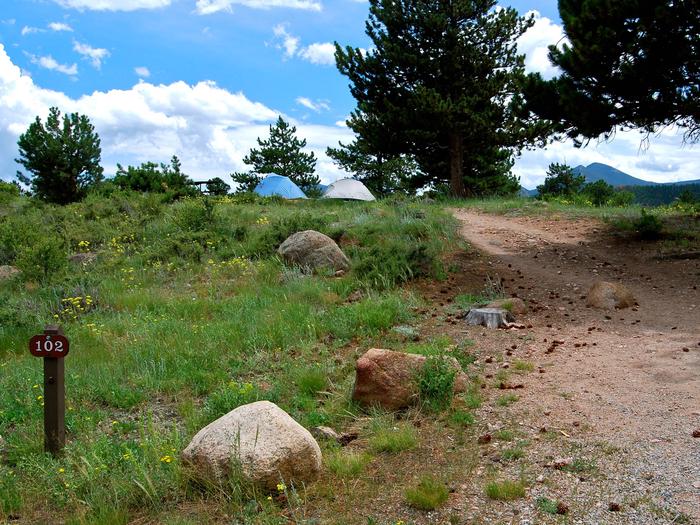Directions
Bogue Chitto NWR is located about 45 miles north of New Orleans, LA.
From the Louisiana Side: To reach the southern tip of the refuge, take I-59 to Pearl River Turnaround Exit 11. Heading east from this exit takes you to a fishing area, turning west will take you toward the Holmes Bayou Trail. NOTE: as of July, 2013, the maintenance of the Holmes Bayou trail will be suspended indefinitely due to lack of funds. The Refuge can also be accessed from Locks 1, 2, & 3 by taking Highway 41 north of Slidell.
From the Mississippi Side: To reach the furthermost East side of the Refuge, take I-59 North to Picayune, MS. Take HWY 43 to Walkiah Bluff Water Park or to Dumas Wise Road to access the Refuge.
Phone
985-882-2000
Activities
BOATING, CAMPING, INTERPRETIVE PROGRAMS, FISHING, HIKING, HUNTING, WILDLIFE VIEWING, PHOTOGRAPHY, PADDLING
Camping Reservations
Reserve your campsite at these camping areas:
Hiking Trails
Looking for nice hiking areas to take a hike? Choose from these scenic hiking trails:
Related Link(s)
More Louisiana Recreation Areas
Bogue Chitto National Wildlife Refuge
On June 30, 1980, President Jimmy Carter signed Public Law 96-288 authorizing the 40,000-acre Bogue Chitto National Wildlife Refuge (NWR) in Washington and St. Tammany Parishes, LA, and Pearl River County, MS. Since that time, the U.S. Fish and Wildlife Service has been acquiring bottomland hardwood habitat in the Pearl River Basin. On December 13, 1989, Congress authorized a boundary expansion for Bogue Chitto NWR that included an additional 8,400 acres of bottomland hardwoods in St. Tammany Parish. To date, some 36,447 acres have been placed under refuge management. The refuge is still in an acquisition phase.
White-tail deer, squirrel, turkey and hog hunting and fishing is offered to the public. The endangered and threatended species found on the refuge are bald eagle, ringed-sawback turtle, gopher tortoise, inflated heelsplitter mussel, and gulf sturgeon. Access is primarily by boat on the refuge’s Louisiana side and road access is available on the refuge’s Mississippi side. In Summer 2002, a new walking trail was unveiled on the Louisiana side of the Refuge. This 3/4 of a mile walking trail offers a unique journey into the interior of Bogue Chitto’s majestic habitat.
Bogue Chitto NWR is primarily composed of bottomland hardwood habitat interlaced by the Bogue Chitto and Pearl River Systems. Numerous sloughs, bayous and lakes are located on the refuge. Water levels fluctuate by several feet from their low point in the summer to winter/spring flood stage. Over 90% of the refuge can be flooded during seasonal high river periods. The mixed hardwood forest includes water oak, overcup oak, American elm, sweetgum, and swamp red maple on higher elevations and bald cypress, tupelo gum, and swamp blackgum along the wettest areas. Mid-story in mixed hardwoods includes ironwood, arrowwood, Virginia willow and reproduction of the overstory. Typical mid-story plants along the sloughs and bayous are buttonbush, swamp privet, and water elm.
The Refuge offers hunting, fishing, wildlife observation, hiking, primitive streamside camping, birding, photography and canoeing.






